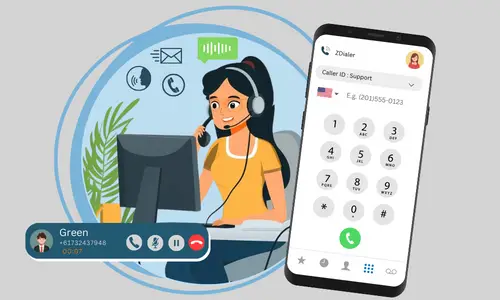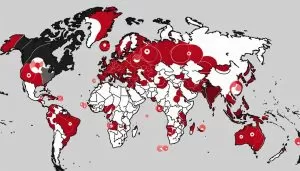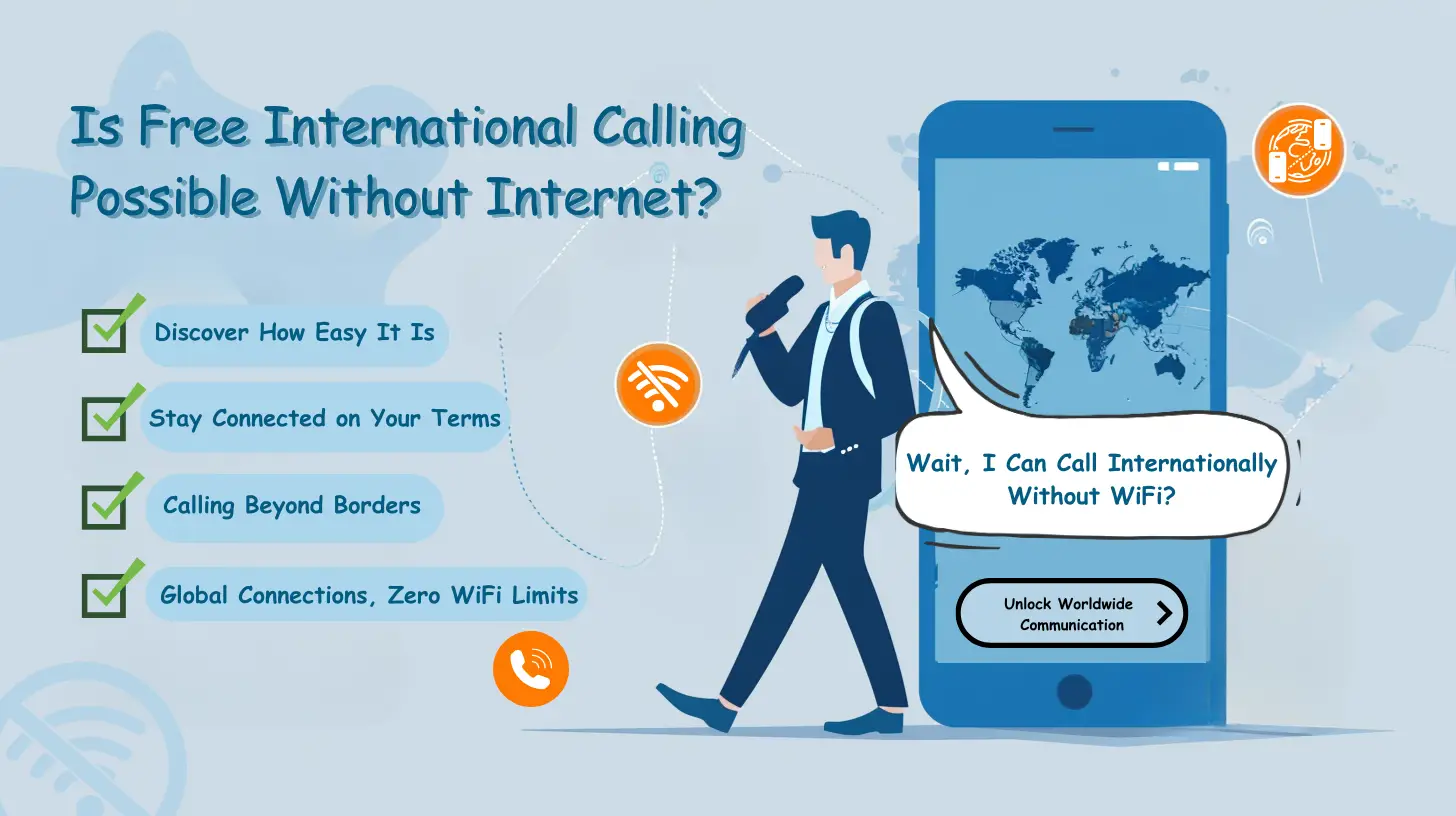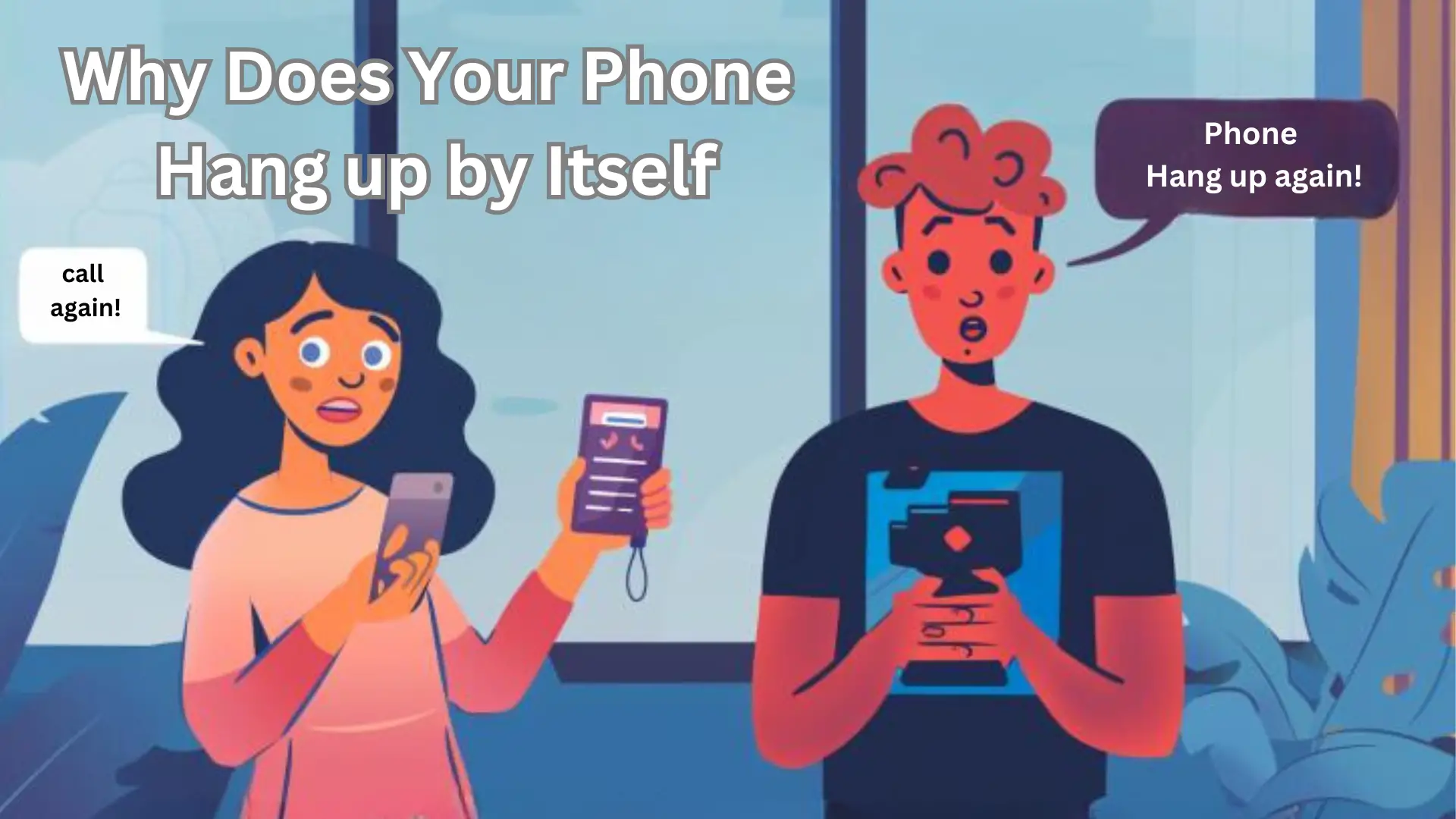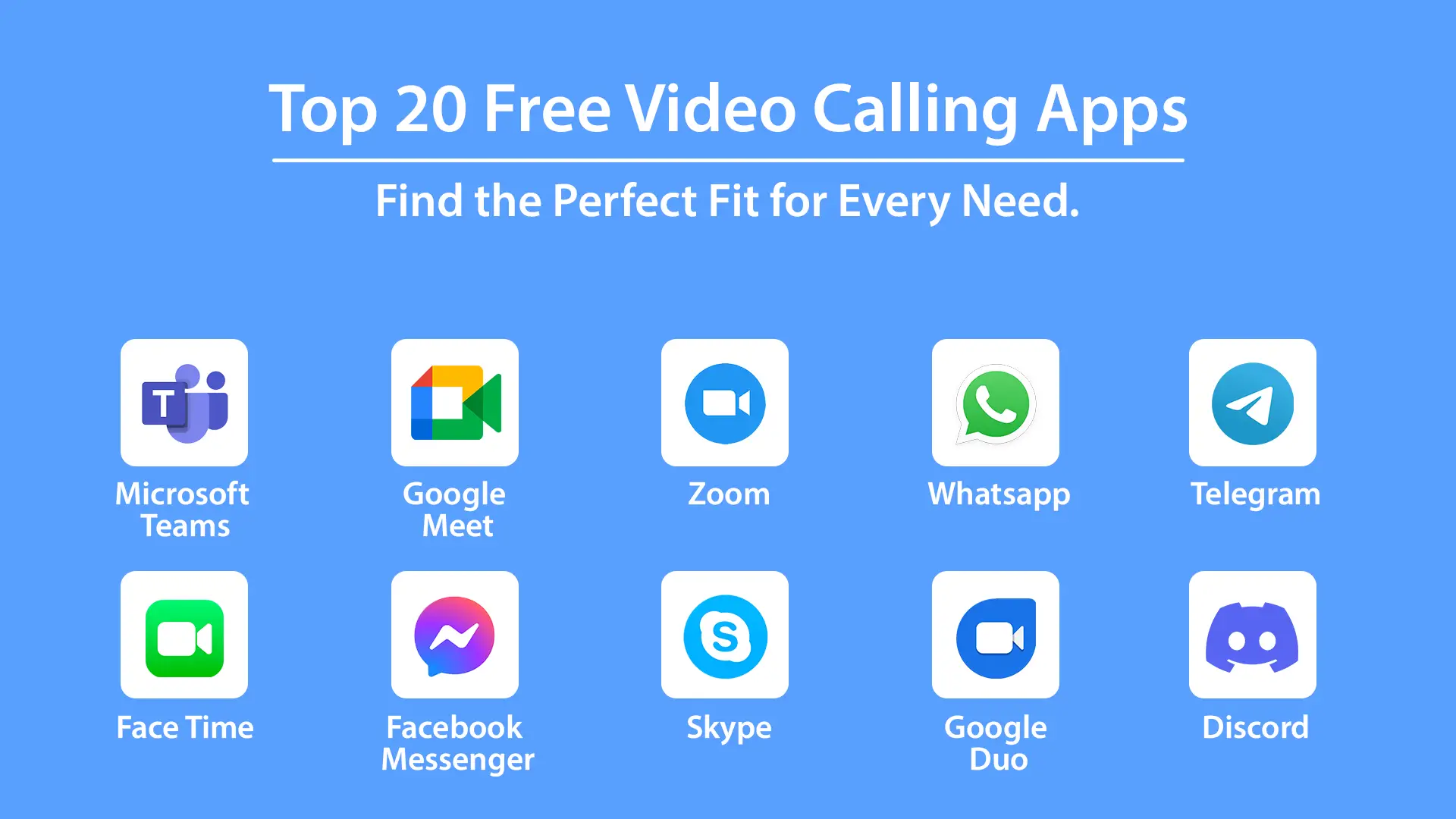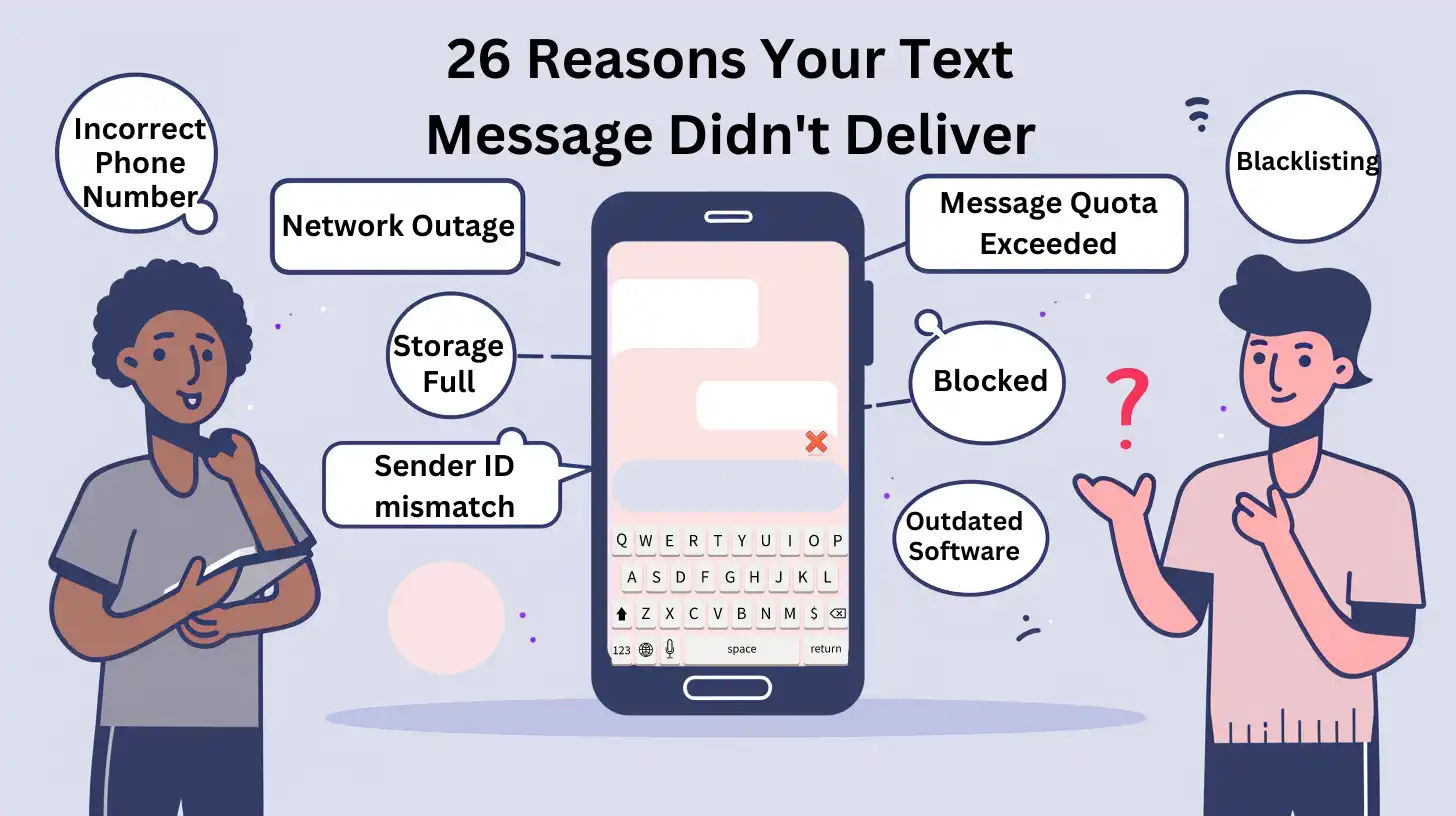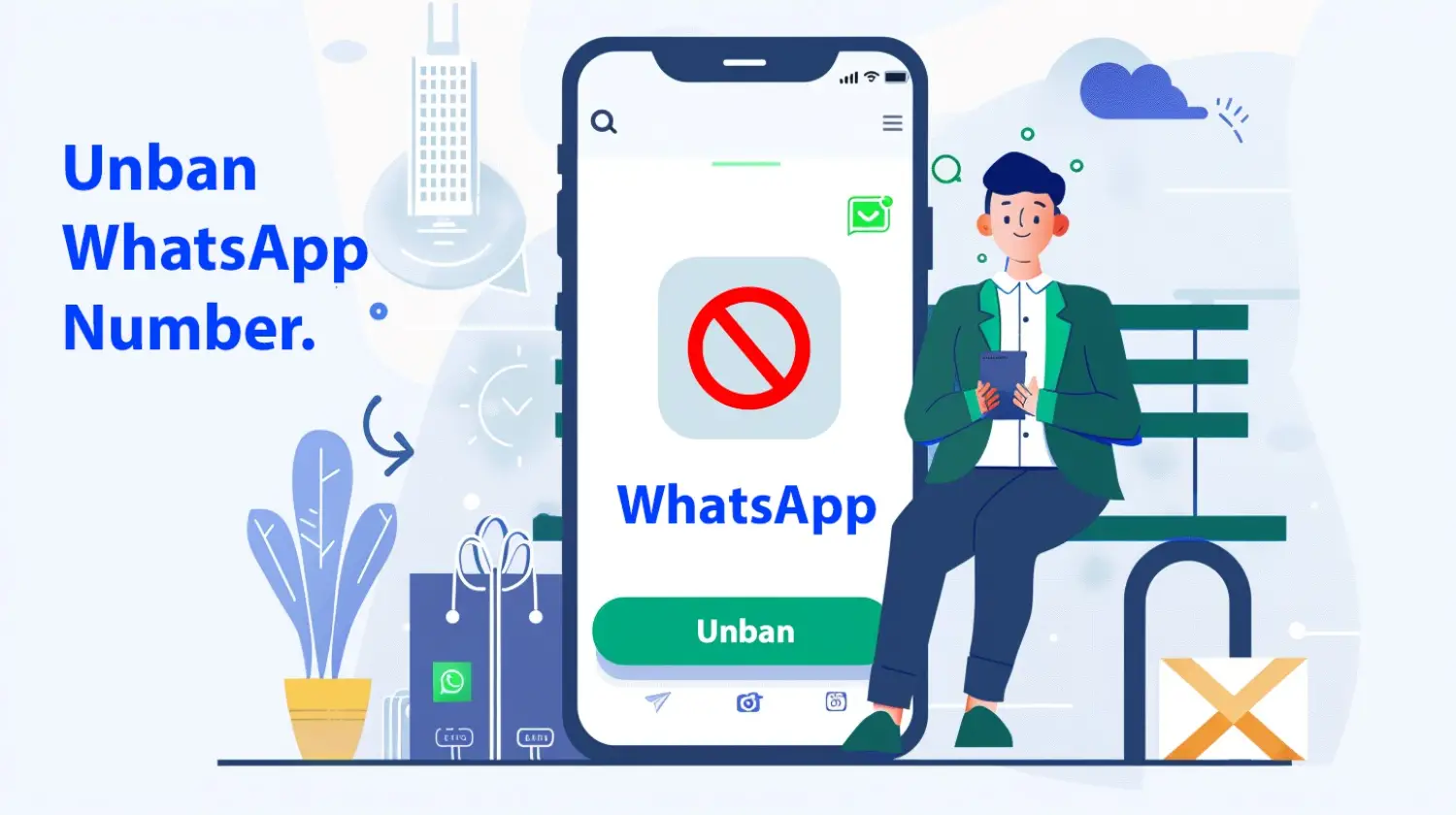VoIP services have been VoIP Services Banned In, impacting the availability of these services for international calls. These bans are often motivated by government control, protection of state-owned telecom companies, and national security concerns. For example, in Oman, unlicensed VoIP Services Banned In prohibited, and websites of unregistered providers are blocked. This ban aims to protect the state-owned Internet services provider, Omantel, from competition. Other countries that have banned VoIP include Cuba, Iran, North Korea, Syria, Sudan, and Crimea.
- VoIP services are banned in several countries due to government control and protection of state-owned companies.
- Oman has prohibited unlicensed VoIP services to protect its state-owned Internet services provider, Omantel.
- Other countries with VoIP service bans include Cuba, Iran, North Korea, Syria, Sudan, and Crimea.
- These bans have a significant impact on individuals who rely on international calls to communicate with their families.
- Alternative methods to bypass these bans include using VPNs, local access numbers, or international callback services.
While negotiations between tech companies and some of these countries are ongoing to repeal the bans, the situation remains uncertain. In the meantime, it is crucial to stay informed about the latest updates and seek alternative solutions to ensure uninterrupted international communication. My Country Mobile serves as a reliable source for information and solutions for your international communication needs.
Understanding the Motivations Behind VoIP Services Banned In
VoIP Services Banned In in certain countries are primarily motivated by government control, the protection of state-owned telecom companies, and national security concerns. These restrictions, although posing challenges for individuals and businesses, are seen as necessary measures to maintain order and protect the interests of the state.
One of the main motivations behind these bans is government control. By prohibiting or heavily regulating VoIP services, governments can maintain a level of control over communication channels within their borders. This control allows them to monitor and censor conversations, ensuring that no sensitive or harmful information is transmitted.
Additionally, VoIP Services Banned In aims to protect state-owned telecom companies. These bans prevent competition from cheaper and more efficient VoIP providers, ensuring that the monopolistic hold of state-owned companies remains intact. This protectionism helps maintain the revenue streams and influence of these companies in the telecommunications industry.
National security concerns also play a significant role in the imposition of these bans. Governments view VVoIP Services Banned In as potential avenues for illegal activities, terrorism, and espionage. By banning or tightly controlling these services, governments believe they can mitigate the risks associated with unregulated communication channels.
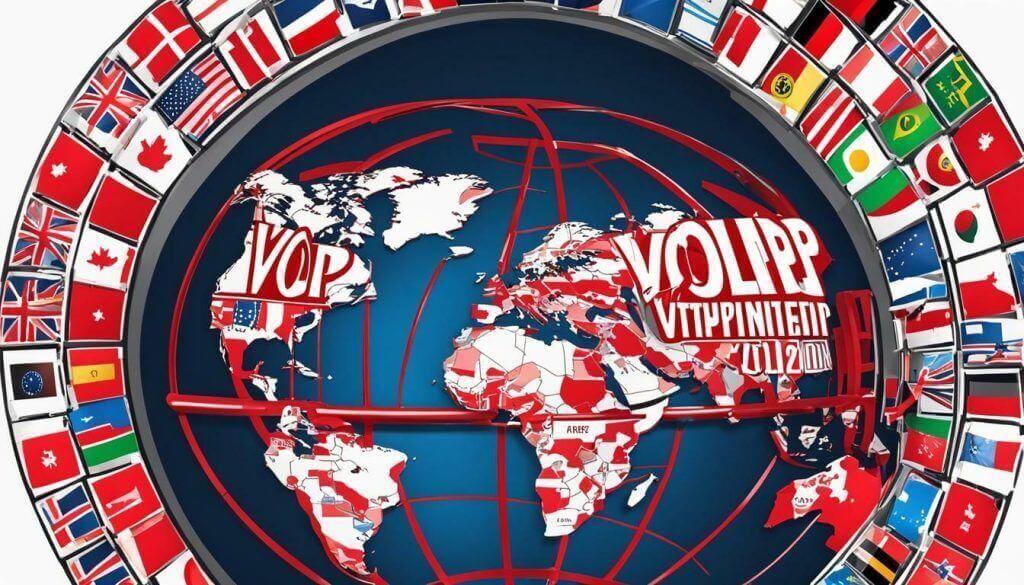
While these motivations may seem restrictive and inconvenient for individuals who rely on international calls, it is important to understand the reasoning behind these decisions. It is an ongoing debate between maintaining control and protecting national interests, and the impact on individuals caught in the middle is a significant consideration.
In the next section, we will delve deeper into the specific ban on VoIP Services Banned In in Oman and how it aims to protect the state-owned telecom company, Omantel. We will explore the implications of this ban and the alternatives available for individuals affected by it.
VoIP Service Bans in Oman: Protecting State-Owned Telecom Companies
In Oman, VoIP Services Banned In are banned to protect the state-owned Internet services provider, Omantel, from competition, resulting in the prohibition of unlicensed services and the censorship of websites. This ban aims to maintain the monopoly of Omantel and prevent other providers from offering cheaper VoIP services.

Unlicensed VoIP services are strictly prohibited in Oman, meaning individuals and businesses are unable to use popular communication platforms such as Skype or WhatsApp for making international calls. Additionally, the government blocks the websites of unregistered VoIP Services Banned In, further limiting access to alternative options.
Table: Countries with VoIP Services Banned In
| Country | Reason for Ban |
|---|---|
| Oman | Protection of state-owned telecom company (Omantel) |
| UAE | National security concerns |
| Kuwait | Government control and protection of state-owned telecom companies |
| Cuba | Government control and censorship |
| Iran | National security concerns and censorship |
| North Korea | Government control and censorship |
| Syria | Government control and censorship |
| Sudan | National security concerns and censorship |
| Crimea | Government control and censorship |
The ban on VoIP services in Oman and other countries has a significant impact on individuals who rely on international calls to communicate with their families, friends, and business contacts abroad.
To bypass these bans, individuals and businesses can explore alternative solutions such as using Virtual Private Networks (VPNs), local access numbers, or international callback services. These methods can help circumvent the restrictions and enable users to connect with VoIP Services Banned In despite the bans.
Other Countries with VoIP Service Bans
Apart from Oman, there are various other countries, such as Cuba, Iran, North Korea, Syria, Sudan, and Crimea, that have imposed bans on VoIP services, affecting individuals who depend on international calls for communication. These bans are often motivated by government control, protection of state-owned telecom companies, and national security concerns.
In Cuba, the government restricts VoIP Services Banned In as a means of limiting access to uncensored information and maintaining control over communication channels. Iran, on the other hand, implements strict regulations to protect state-owned telecom companies and prevent revenue loss. The bans in North Korea, Syria, and Sudan are primarily driven by concerns related to national security and limiting external communication.
Crimea, which is currently under Russian occupation, also imposes bans on VoIP Services Banned In as part of its effort to control communication and maintain authority over the region. These bans have a significant impact on individuals who rely on international calls to stay connected with their families and loved ones.
Despite the challenges posed by these bans, there are alternative methods available to bypass them. This includes using Virtual Private Networks (VPNs) to access blocked services, utilizing local access numbers that provide a workaround for connecting to VoIP Services Banned In, and employing international callback services as another option for VoIP communication.
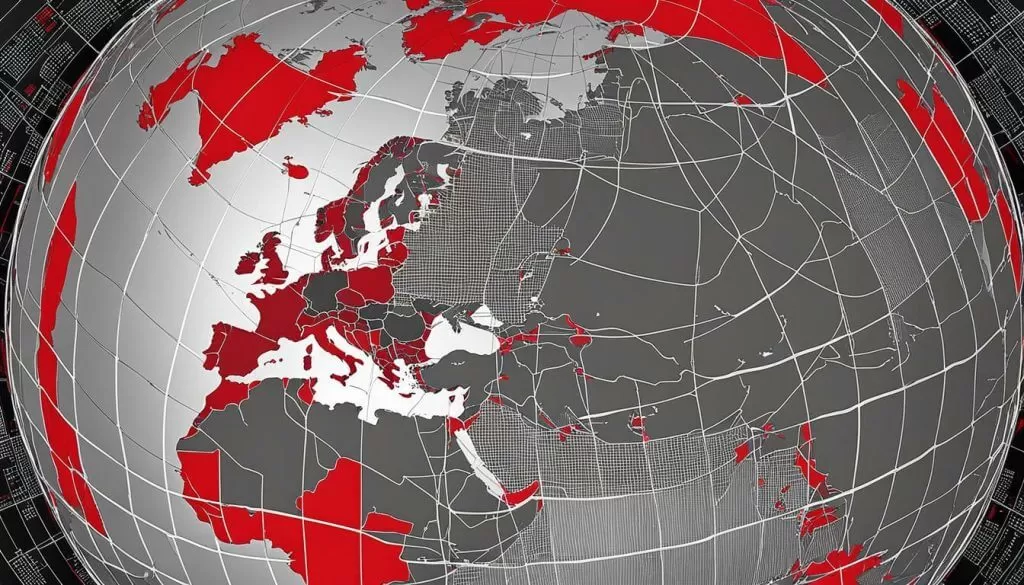
Impact of VoIP Service Bans on International Communication
The bans on VoIP services have a profound impact on individuals who heavily rely on international calls to stay connected with their families and loved ones. These restrictions, prevalent in countries like Oman, the UAE, Kuwait, and others, pose significant challenges for those seeking affordable and convenient communication options.
For instance, Oman has implemented strict regulations prohibiting unlicensed VoIP Services Banned In and blocking websites of unregistered providers. This ban primarily aims to protect Omantel, the state-owned Internet services provider, from competition. As a result, individuals in Oman face limited choices and higher costs when making international calls.
Other countries, including Cuba, Iran, North Korea, Syria, Sudan, and Crimea, have also banned VoIP services for various reasons such as government control, protecting state-owned telecom companies, and national security concerns. These bans further exacerbate the difficulties faced by individuals seeking affordable means of communication.
Alternative Solutions to Overcome VoIP Service Bans
Despite these challenges, individuals can explore alternative solutions to bypass VoIP Services Banned In bans. One option is to utilize Virtual Private Networks (VPNs) that allow users to access restricted services by masking their IP addresses. VPNs provide a secure and encrypted connection, enabling individuals to make international calls while bypassing the bans. It is essential to stay updated on the latest VPN technologies and choose reputable providers to ensure privacy and security.
Another alternative is using local access numbers. This method involves connecting to VoIP services through local numbers provided by authorized telecom companies, even in countries where VoIP services are banned. Although this option may incur additional charges, it offers a way to bypass restrictions and make international calls seamlessly.
International callback services also present a viable solution for individuals affected by VoIP Services Banned In. These services work by initiating a call to the user first and then connecting them to their desired destination at a more affordable rate. While callback services may require some setup and additional steps, they provide a practical workaround for making international calls despite the bans.
| Country | Reason for Ban |
|---|---|
| Cuba | Government control |
| Iran | Protection of state-owned telecom companies |
| North Korea | National security concerns |
| Syria | Government control |
| Sudan | Government control |
| Crimea | Russian occupation |
While negotiations between tech companies and countries with VoIP Services Banned In are ongoing, the situation remains uncertain. Therefore, individuals must stay informed about the latest updates and seek alternative solutions to ensure uninterrupted communication with their loved ones. My Country Mobile can serve as a valuable resource, providing information and solutions for international communication needs in the face of these bans.
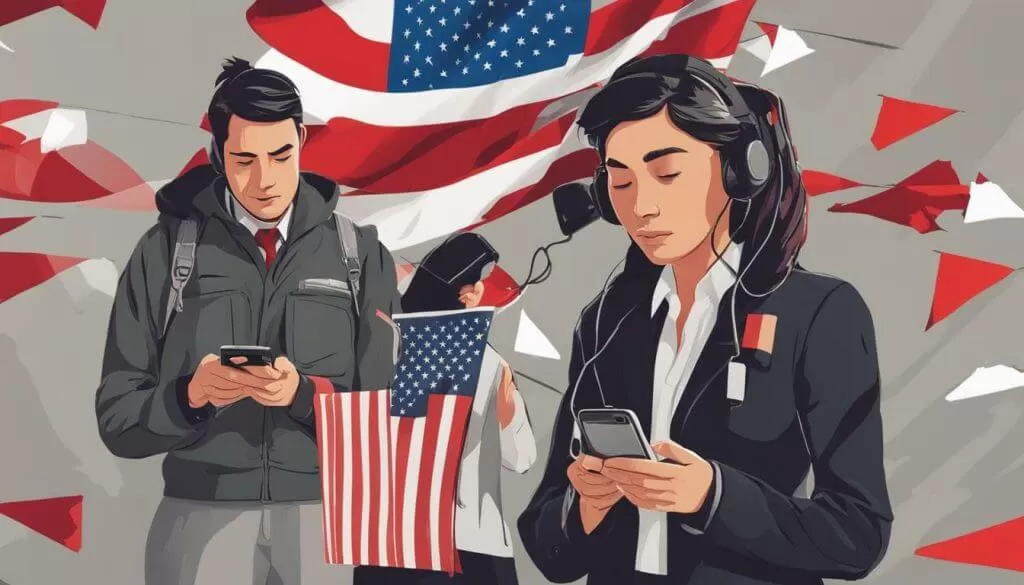
Despite the bans, there are alternative solutions available to bypass VoIP service restrictions, such as utilizing VPNs, local access numbers, or international callback services. These methods enable individuals and businesses to continue making international calls in countries where VoIP services are banned.
Virtual Private Networks (VPNs) are a popular choice for bypassing VoIP Services Banned In. A VPN creates a secure connection between the user’s device and a server located in a different country, allowing them to access VoIP services as if they were in that country. By encrypting internet traffic, VPNs provide anonymity and protect sensitive information.
Another option is using local access numbers. With this method, users can connect to VoIP Services Banned In by dialing a local number provided by the service provider. The call is then transferred over the internet, bypassing the ban on direct VoIP calls. Local access numbers offer convenience and cost savings for international communication.
International callback services provide an additional alternative. These services work by having the user initiate an outbound call to the service provider, who then establishes a call with the desired international destination. This method bypasses VoIP service bans by relying on the callback service’s infrastructure, allowing users to make international calls without restriction.
Alternative Solutions for Bypassing VoIP Service Bans:
| Method | Advantages |
|---|---|
| Using VPNs | – Provides secure and anonymous access to VoIP services – Allows users to connect from anywhere in the world |
| Local Access Numbers | – Offers cost savings for international calls – Convenient and easy to use |
| International Callback Services | – Allows users to make international calls without restrictions – Relies on the callback service’s infrastructure |
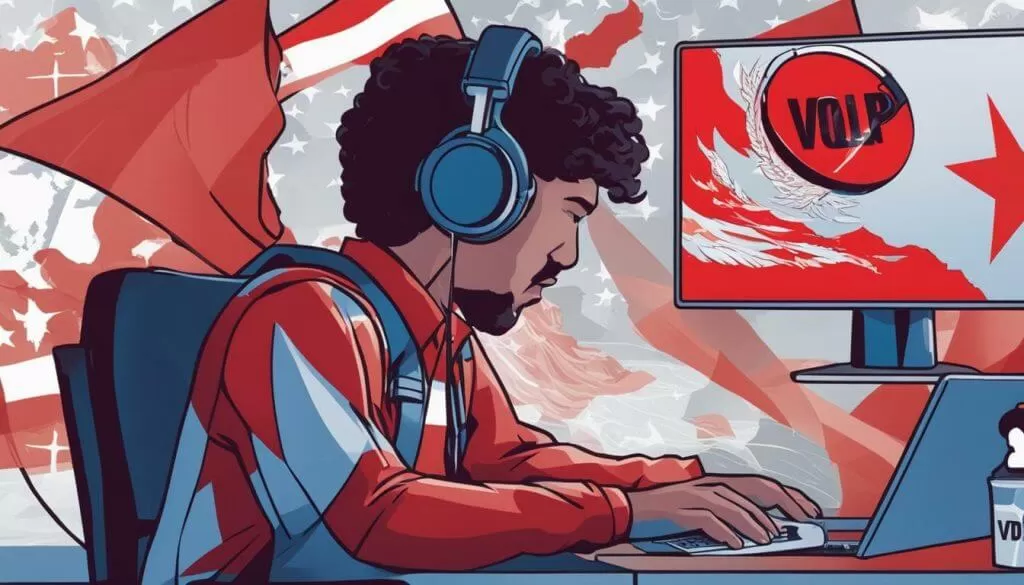
Using these alternative solutions, individuals and businesses can overcome VoIP service restrictions and continue their international communication needs. It’s important to stay informed about the latest updates on VoIP service bans and choose the method that best suits individual requirements. My Country Mobile provides valuable information and solutions for navigating these restrictions, ensuring uninterrupted international communication.
Negotiations and Repealing VoIP Service Bans
Negotiations between tech companies and certain countries with VoIP Services Banned are ongoing, potentially leading to the repeal of these restrictions in the future. Governments impose bans on VoIP services for various reasons, including government control, protection of state-owned telecom companies, and national security concerns. Oman, for example, has gone as far as prohibiting unlicensed VoIP services and blocking the websites of unregistered providers to protect its state-owned Internet services provider, Omantel, from competition.
The impact of these bans on individuals who rely on international calls for communication is significant. Countries like Cuba, Iran, North Korea, Syria, Sudan, and Crimea have also implemented bans on VoIP services, making it increasingly challenging for people to stay connected with their families and loved ones overseas. The need for alternative solutions to bypass these bans has become crucial.
One method to bypass VoIP service bans is through the use of Virtual Private Networks (VPNs). VPNs provide individuals with a secure and encrypted connection, allowing them to access blocked VoIP services and communicate freely. Local access numbers have also emerged as a workaround in countries where VoIP services are banned. By dialing a local access number, individuals can connect to VoIP Services Banned In through a different route, bypassing the restrictions.
Another alternative is the use of international callback services. These services enable individuals to initiate international calls by first receiving a callback on their registered numbers, thus bypassing the ban on direct VoIP calls. Negotiations between tech companies and countries with VoIP Services Banned In offer hope for the future, as they strive to find a common ground and potentially repeal these restrictions, allowing for seamless international communication.
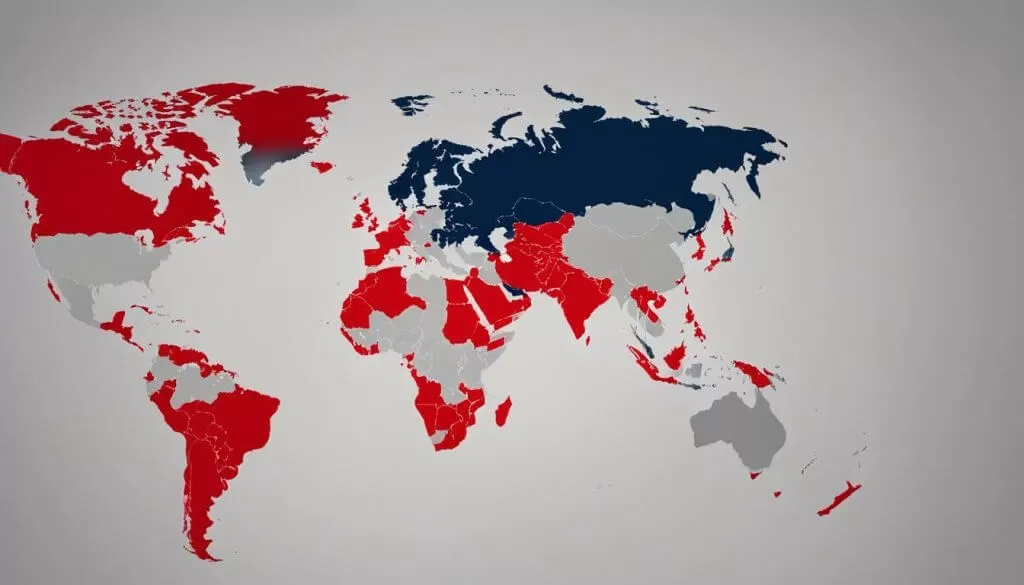
My Country Mobile – Your Source for International Communication Solutions
My Country Mobile is a trusted platform that offers comprehensive solutions and information for all your international communication needs. Whether you are an individual looking to stay connected with loved ones abroad or a business seeking cost-effective communication solutions, we have got you covered. With our expertise in the telecommunications industry, we understand the challenges posed by VoIP service bans in certain countries.
As a leading provider of global communication services, we are committed to helping you navigate these restrictions and find alternative methods to connect with international contacts. Our platform provides valuable insights into the countries where VoIP Services Banned In are banned, such as Oman, the UAE, Kuwait, Cuba, Iran, North Korea, Syria, Sudan, and Crimea. We explain the motivations behind these bans, ranging from government control to protection of state-owned telecom companies and national security concerns.
Furthermore, we offer practical solutions to bypass these bans and stay connected. Our experts can guide you on using Virtual Private Networks (VPNs) to access VoIP Services Banned In, leveraging local access numbers, or utilizing international callback services. We keep you informed about the latest updates and negotiations regarding the repeal of these bans, ensuring that you have the most up-to-date information at your fingertips.
Trust My Country Mobile to be your reliable source of information and solutions for all your international communication needs. With our expertise and dedication to customer satisfaction, we are here to help you overcome VoIP service bans and stay connected worldwide.
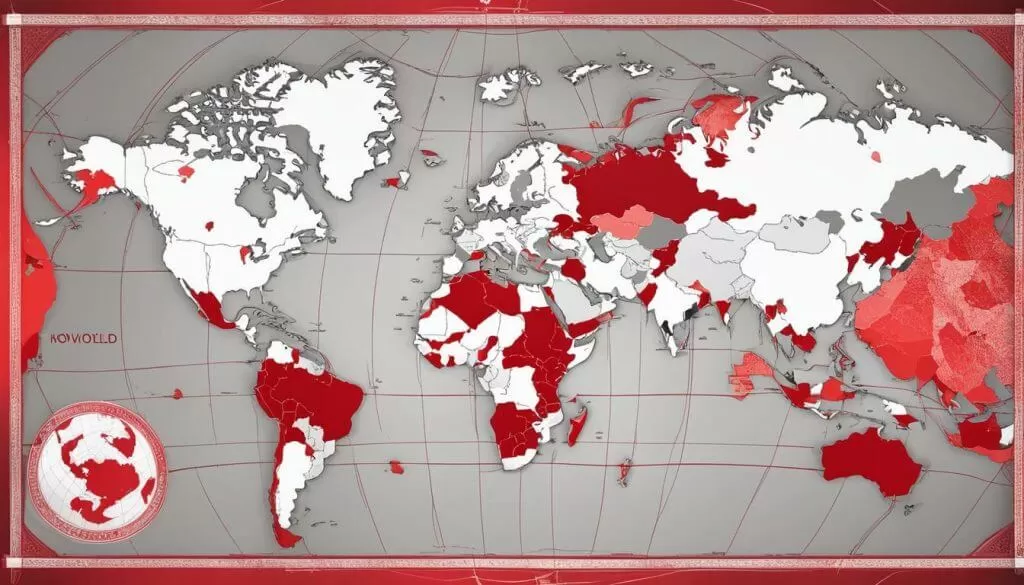
| Country | Reason for Ban |
|---|---|
| Oman | Protection of state-owned telecom company |
| UAE | National security concerns |
| Kuwait | Government control |
| Cuba | Government control |
| Iran | Government control |
| North Korea | National security concerns |
| Syria | National security concerns |
| Sudan | Government control |
| Crimea | National security concerns |
Using VPNs to Access VoIP Services
Virtual Private Networks (VPNs) can be utilized to bypass VoIP service restrictions and gain access to blocked services. VPNs create a secure and encrypted connection between your device and the internet, allowing you to bypass geographic restrictions and access VoIP Services Banned In in countries where they are banned. By masking your IP address and encrypting your data, VPNs enable you to appear as if you are accessing the internet from a different location, thus bypassing any restrictions imposed on VoIP Services Banned In.
Using a VPN to access VoIP services provides several benefits. Firstly, it allows individuals and businesses to communicate freely with their international contacts without being hindered by service bans. VPNs also provide an added layer of security by encrypting your data, protecting it from potential threats and ensuring your privacy. Additionally, VPNs offer a high level of flexibility, enabling users to access VoIP services from various devices such as smartphones, tablets, and computers.
When selecting a VPN for accessing VoIP services, it is essential to choose a reputable provider that offers strong encryption and reliable connection speeds. It is also important to consider the VPN’s server locations, as having servers in countries where VoIP services are not banned can enhance your access to these services. By staying informed about the latest updates on VoIP Services Banned In bans and utilizing VPNs, individuals can continue to communicate internationally, overcoming the restrictions imposed by certain countries.
Table 1: Comparison of VPN Providers for Accessing VoIP Services
| VPN Provider | Server Locations | Encryption | Connection Speed |
|---|---|---|---|
| ExpressVPN | 160 | AES-256 | High |
| NordVPN | 59 | AES-256 | Very High |
| Surfshark | 65 | AES-256 | Fast |
Table 1 provides a comparison of three popular VPN providers for accessing VoIP services. Each provider offers a wide range of server locations, strong encryption, and fast connection speeds. It is important to note that VPN performance may vary based on factors such as the user’s internet connection, location, and VPN server load.

Utilizing VPNs is a reliable and effective method to bypass VoIP service restrictions and gain access to blocked services. By using a reputable VPN provider and staying informed about the latest updates on VoIP service bans, individuals can continue to communicate internationally, regardless of geographical limitations.
Local Access Numbers for VoIP Services
Local access numbers can be used as an alternative method to connect to VoIP Services Banned In in countries where such services are banned. These numbers allow users in restricted countries to make international calls forwarding a local number, bypassing the ban on direct VoIP communication.
By using local access numbers provided by service providers like My Country Mobile, individuals can enjoy the benefits of VoIP Services Banned In while complying with local regulations. These numbers work by establishing a connection between the caller’s local number and the desired international destination, acting as a bridge for international communication.
Using local access numbers offers several advantages. Firstly, it enables users to make affordable international calls without incurring high charges from traditional telecom providers. Secondly, it ensures privacy and security as the calls are encrypted and routed through secure networks. Lastly, it provides flexibility and convenience as users can make calls from any device with an internet connection.
| Advantages of using Local Access Numbers: |
|---|
| Cost-effective international calls |
| Privacy and security through encryption |
| Flexibility to make calls from any device |
It’s important to note that availability and pricing of local access numbers may vary depending on the country and service provider. Before using this method, individuals should research and select a reliable provider who offers local access numbers for the desired international destinations.
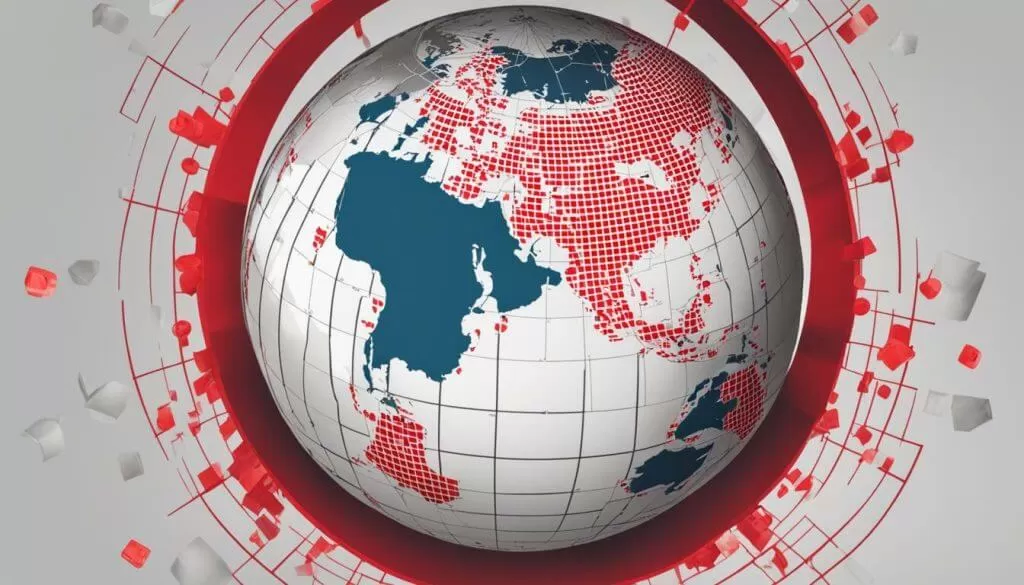
International callback services can be utilized as an alternative option for VoIP communication in countries where bans and restrictions are in place. These services enable users to bypass VoIP Services Banned In prohibitions and lockdowns by establishing a callback connection through a third-party provider. By utilizing international callback services, individuals can make international calls at lower costs, ensuring uninterrupted communication.
With the help of an international callback service, users can initiate a call by providing their desired destination number to the callback provider. The provider then establishes a connection by initiating two separate calls: one to the user’s registered phone number and another to the desired destination number. The provider bridges these two calls, creating a seamless, cost-effective communication link.
One of the advantages of using international callback services is the ability to bypass VoIP Services Banned In and restrictions in countries like Oman, the UAE, and Kuwait. These services offer an alternative means of making international calls, circumventing the limitations imposed by local regulations. By leveraging callback technology, users can maintain communication with their families, friends, and business contacts, regardless of the VoIP service bans in place.
At My Country Mobile, we understand the challenges faced by individuals and businesses affected by VoIP Services Banned In prohibitions. As a reliable source for international communication solutions, we offer information and resources to help users navigate the complexities of restricted VoIP services. From providing details on alternative methods, such as international callback services, to offering insights on the latest updates regarding bans and restrictions, we strive to empower our users with the knowledge they need to stay connected. Connect with us today to explore the options available and find the most suitable solution for your international communication needs.
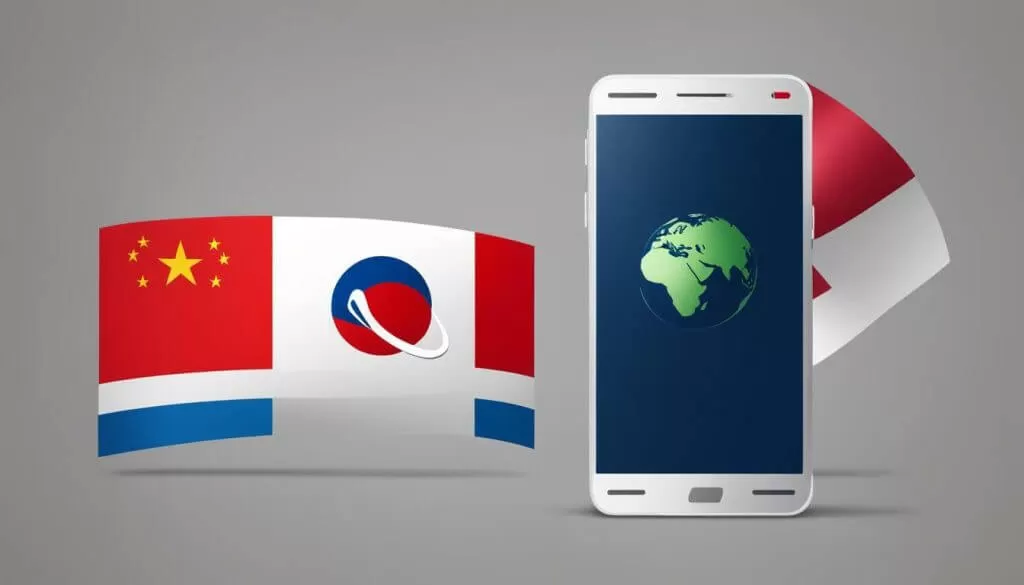
Conclusion
In conclusion, the bans on VoIP Services Banned In in various countries continue to have significant implications for international communication, motivating individuals to explore alternative solutions to overcome these restrictions.
VoIP services are banned in several countries, including Oman, the UAE, and Kuwait. These bans are often motivated by government control, protection of state-owned telecom companies, and national security concerns. In Oman, unlicensed VoIP Services Banned In are prohibited, and websites of unregistered providers are blocked. The ban in Oman is aimed at protecting the state-owned Internet services provider, Omantel, which would face competition from cheaper VoIP services. Other countries that have banned VoIP Services Banned In include Cuba, Iran, North Korea, Syria, Sudan, and Crimea.
These bans have a significant impact on individuals who rely on international calls to communicate with their families. Being unable to use VoIP Services Banned In restricts their ability to connect with their loved ones, especially when more affordable alternatives are available. However, individuals are not left without options. Alternative methods to bypass these bans include using VPNs, which allow users to access blocked services by routing their internet connection through a different location. Local access numbers can also be used as a workaround to connect to VoIP services in countries where they are banned. Additionally, international callback services provide another alternative for VoIP communication in countries with bans.
While negotiations are ongoing between tech companies and some of these countries to repeal the bans, the situation remains uncertain. It is crucial for individuals to stay informed about the latest updates on these bans and seek alternative solutions. My Country Mobile is a reliable source for information and solutions regarding international communication needs. By staying informed and utilizing the services provided by My Country Mobile, individuals can navigate through the challenges posed by VoIP service bans and ensure uninterrupted communication with their loved ones.





